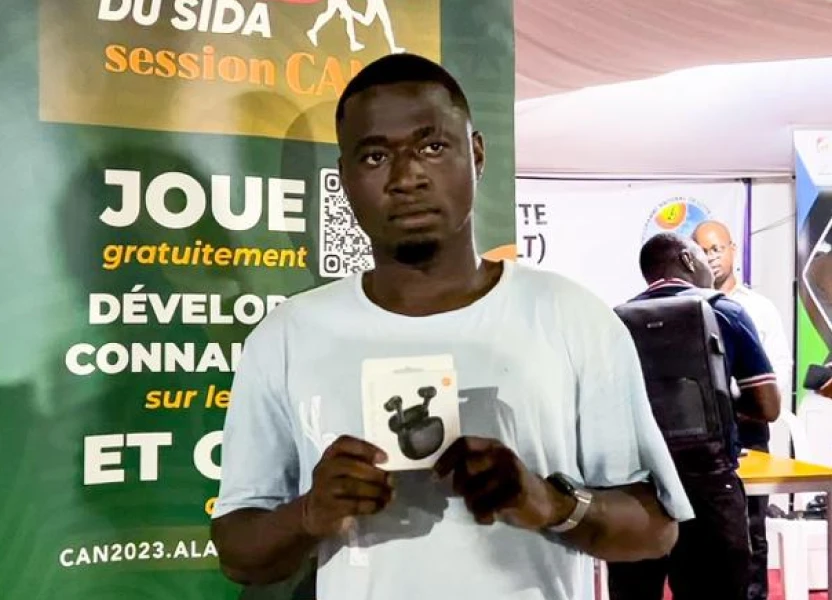
“This is a generation that has never seen the ravages of AIDS, so they have felt like it isn’t a problem—but it is,” says Eboi Ehui, Coordinating Director of the National AIDS Programme
Four weeks before the African Cup of Nations football tournament, José Fardon, a Côte d’Ivoire web designer and digital developer, and his team were working hard on a special edition of an interactive health and HIV video game called A l’Assaut du Sida (“Tackling AIDS”) to coincide with kick-off.
The Joint United Nations Programme on HIV/AIDS (UNAIDS) team had secured funds for the latest rendition of the game and had rallied the Ivorian network of young people against AIDS (RIJES), United Nations Children’s Fund and the Global Fund to Fight AIDS, Tuberculosis and Malaria to chip in.
“We had launched various versions of the game in the past, but this required a different look and feel to gel with the sporting event,” said José.
They also needed final approval from the National AIDS Programme.
“Out of the many initiatives put forward ahead of the Cup of Nations, the online app really appealed to us because we knew it would not only reach the target audience—it would also make an impact,” said Eboi Ehui, Coordinating Director of the National AIDS Programme. “This is a generation that has never seen the ravages of AIDS, so they have felt like it isn’t a problem—but it is.”
The success was beyond anyone’s expectations.
The 20 000 tournament volunteers played the game themselves and promoted it by sharing the QR code with hundreds of thousands of supporters at the football stadiums. Prize giveaways encouraged more people to download the app. Since January 2024, the game has reached nearly 200 000 adolescents and young people. Cumulatively, the three versions have reached 300 000 people.
“When I think back, this idea germinated in 2016 as a tool for schools and then was launched at the Francophonie Games a year later—but now, we have really brought it to the general public,” José said. “I am so proud we never gave up.”
His determination convinced UNAIDS staff, the Ministry of Health, the National AIDS Programme, the Ministry of Education, the Ministry of Youth and countless partners on the ground.
Most saw the value and potential of using digital technology to reach adolescents and young people, because knowledge about HIV and overall comprehensive sexual education have decreased in the country.
In July 2023, the National AIDS Council was alerted by the results of a Demographic and Health Survey report* and requested HIV partners to step up communication and education efforts.
Only 40% of 15–19 year old girls and boys knew that antiretroviral medicines existed for HIV, and 39% of 15–24 old girls and 29% of 15–24 year old boys did not know that condoms prevented HIV transmission.
In 2023, 20% of new HIV infections in the country were among young people aged 15–24 years.
The number of questions in the game was increased, expanding the amount of information on HIV prevention. Players score points by advancing through 40 sets of 10 questions. At least seven correct answers are needed to advance to the next level. It can take up to an hour to get to the final round. When the updated pilot was tested in October and November 2023, young people responded well.
“The game really taught me a lot. There are a lot of facts about HIV and sexually transmitted infections,” said one user. Another user said, “I learned a lot of things that I had no idea about, from tuberculosis to HIV—and even on a personal level I picked things up.”
National partners now want to distribute a scholastic version of the game to all schools in Côte d’Ivoire. And eventually throughout the region.
* Côte d’Ivoire National Institute of Statistics. Côte d’Ivoire: enquête démographique et de santé. DHS 2021 survey. Rockville, United States